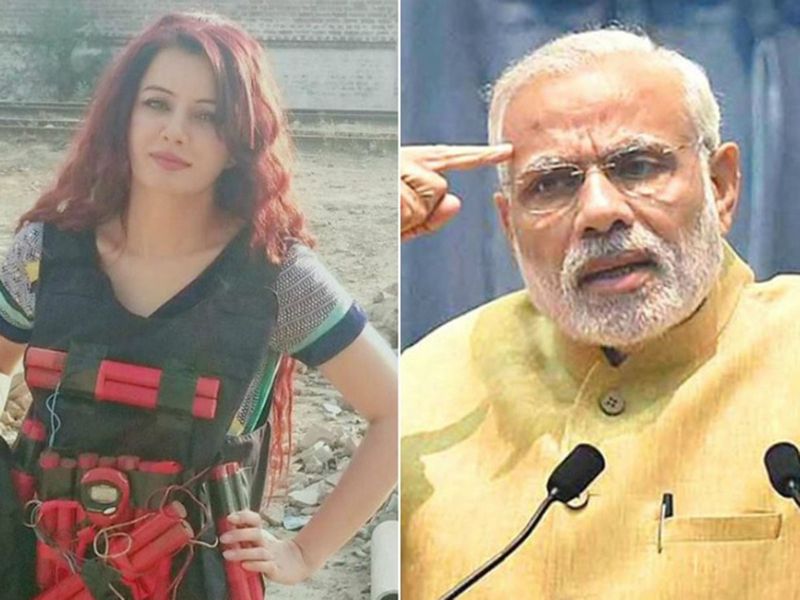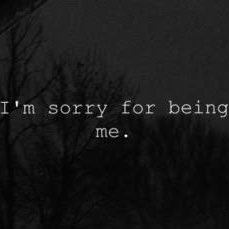Singer announces early retirement after backlash includes release of personal videos

What was arguably a publicity stunt has turned into a nightmare for Pakistani celeb Rabi Pirzada, who has now decided to take a break from the spotlight. Her absence, however, is surprisingly making her a greater presence in today’s conversation: the use of revenge porn.
So what happened?
Last month, Pirzada took on the behemoth Modi brand when she posted a video of herself alongside deadly pythons, saying that she wanted to set all manner of reptiles loose on the leader of India’s government. "All these are gifts for PM Modi. My friends will feast on you," she had written alongside the video.

Both vitriol and praise thundered down on social media as Pirzada became a polarizing, meme-worthy representation of what Modi’s Kashmir decision – to revoke Article 370, which granted Kashmiri’s special rights – had born.
Next, Pirzada – who has worked as a TV host and singer – made bold by the viral response, shot another video. She dressed up as a suicide bomber and posted a picture of herself in it with a caption warning PM Modi. "#ModiHitler I just wish huh. #kashmirkibeti."

During her first statement, she was fined by wildlife authorities, vilified by Modi followers and glamorized by detractors. In case number two, there was greater flak, with Twitter users pointing to a lack of sensitivity towards victims of real suicide bombers.
But what really got the world talking was what came next – intimate videos and photographs of the singer were leaked online and as a result of the trolling that ensued, she decided on early retirement …at the age of 30.
What is revenge porn and how are people using it?
Revenge porn is the use of any data that exposes a person’s vulnerability in a social setting. Often, this comes with the onslaught of stigma and a huge personal cost, in Pirzada’s case her career.
It’s also meant the spark of a more relevant conversation – is exposure to personal data the new way to vengeance? And if someone should release such content, how should the world respond?
The #IamRabiPirzada has now begun to trend on Twitter - after Dutch-Pakistani Fauzia Ilyas launched it - where women hearing the clarion call are posting images of themselves and saying her body, her life, her choice.
This is also a frightening time for this ‘choice’ of hers to become public – in places like traditional Pakistan, a woman’s social standing is equated with the honour of a household and such public exposure can lead to very deadly consequences.
Who is Rabi Pirzada?
30-year-old Pirzada, is the daughter of a former Army officer, Humayun Pirzada and an architect and educationist mother. She was born on February 3, 1989, and has been in the limelight since the age of 16.
She attended a local school in Lahore.
Come 2005, Pirzada debuted with the song ‘Daadi Kuree’, which she calls a catchy number. Other hits from the same album were 'Jadoo', 'Ranjhna' and 'Boom Boom'.
She followed this up with ‘Mughay Ishq Hai’ in 2006. On her website, she claims the video of this song was a crushing of the glass ceiling in Pakistan; it was, she writes, the first time the video showcased a girl wearing jeans and tank top.
Then in 2010, Pirzada married an ex-Army officer, Tariq Shah, and since then has given birth to two sons. The couple also opened a beauty salon in Lahore.
But her new family did not come at the cost of her career. In 2013, Pirzada took a year off from the entertainment industry to graduate from college; this meant her getting a degree in software engineering.
After this, she decided to focus on her entertainment career. She went on to star in a number of shows including 'What’s up with Rabi?'; 'Mazaq Raat' and the movie 'Shor Sharaba'.
In 2018, she also worked on numbers such as ‘Fraudian’ and ‘Jeele’.
Finally, in October of 2019, she took began to drop videos that attacked Modi, and so entered the public arena.
What happened next?
The response to the Pirzada personal videos and images has been swift and it has been harsh. According to reports, Rabi has lodged a complaint with the Federal Investigation Agency over the leaked content that went viral on social media platforms, however, she has not been quick to point the finger at person she thinks is responsible. Media reports have alluded to a former disgruntled beau, but this cannot yet be confirmed. Some netizens are pointing to Pakistani Army spokesperson Major Asif Ghafoor, with whom she had an argument just before the leak, but this could not be independently verified by Gulf News.
Meanwhile, Pirzada has tweeted a harried series, calling for forgiveness and saying goodbye to fans.
What happens when privacy is breached?
While the recent lashing has sent Pirzada heading for the stage exit sign, there are signs of trouble brewing. It is reminiscent of another, famous case; that of Qandeel Baloch, who was a social media celebrity, who for her ‘controversial videos’ was trolled, attacked in person and went on suffer a tragic death at the hands of her own brother.
Pirzada has made more controversial clips, inciting violence, say some. But the real threat to life and limb over misconstrued boundaries is what needs to be looked at.
There is a troubling ripple of disdain in the country of Pakistan, which remains a conservative state. Salman Sufi, Pakistan’s international public policy and gender reforms specialist who is responsible for the overhaul of many systems and a campaigner for personal privacy, told Gulf News: “The similarity is that they [both Baloch and Pirzada] are women who are being judged and cornered just because of their gender as men mostly walk away unscathed in similar circumstances these women faced.”
It’s not a question of whether you like Pirzada or not, it’s about a person’s privacy. Sufi explains: “Firstly, it’s a crime with severe punishments that must start to be carried out. People sharing someone’s intimate videos and pictures must be brought to trial and prosecuted so an example can be set. Secondly, civil society and government must develop a platform to educate young generations on the concept of privacy and how someone’s private life must be respected regardless of how much you disagree with it as they aren’t forcing you to follow their path.”
The latest privacy campaign he is focused on deals with these issues. In an earlier interview with Gulf News, Sufi had said “I’m currently in the process of drafting a law with [Pakistani human rights lawyer] Asma Jahangir’s firm and digital rights foundation that will secure citizens from being recorded from CCTV cameras and then those video footages being leaked for blackmail purposes.”
For now, the changes are in the pipeline.
What UAE-based Pakistani expats are saying
Salman Zahid Qureshi, Comedian
Salman Zahid Qureshi
“There is so much wrong here. The three main things that stood out for me [in the Pirzada case] are: 1. How we've become a trigger happy society who just want to forward stuff without thinking of consequences. 2. The invasion of privacy - we've seemed to have lost our sense of human decency. 3 Most importantly, I hope men who continue to belittle women's movements, etc. wake up and realise how misogynistic our society is and the impact on women. This is someone's livelihood and career affected apart from the mental anguish the person has to go through.”
Agha Ghazanfar Raza, Producer
Agha Ghazanfar Raza
“She has been married for some years now, so we know this wasn’t released by an immoral ex, she is still living with her husband, an educated guess would be that it wasn’t him who put the material online.
"My question here is why hasn’t she named the perpetrator responsible for this.
This could help stop someone else’s private images going public. But no she started a hashtag on twitter but wouldn’t come forward with a name."
Makes me wonder if there is more to this story than what meets the eye.”
Fiza Jabeen - MUA and Corporate Professional

“We live in a world where anyone can lose their privacy with matter of micro seconds. As a society we need to condemn it by not sharing it. Whether call it breach of privacy or a publicity stunt if you chose to ignore sharing/commenting/etc. rather report, the purpose of both (breach of privacy or publicity stunt) can be avoided.”
Ayesha Imtiaz, Social worker and Influencer
Ayesha Imtiaz
"I totally condemn the whole situation. It’s absolutely unacceptable to encroach into anyone’s private life, (even if the person is a celebrity/public figure) without his or her consent. Privacy is directly linked with respect. Sharing her private pics and videos was a shameful, disrespectful act and I am glad that Rabi has managed to file a complaint I truly hope that FIA is able to deliver. It will be a learning curve for many."












![Check Karo Zara [HD Prints]](https://blogger.googleusercontent.com/img/b/R29vZ2xl/AVvXsEihJUc0Lio5OTF7sFkvwT8dz3h9EqYvj_PfcxT6xU3A76gAVv9j04yWK7OL1MzRfl5jTBtz2jJHHx6IJdwCVnXl3Re-yIoW_GrY5I7eJvaXC4fZYh4C5RSqppRXZBZKrPPve0sn69tzsuI/s470/Annotation+2020-06-11+045903.jpg)
![Mia Khalifa Hot Video Uncensored [Viral on Internet]](https://blogger.googleusercontent.com/img/b/R29vZ2xl/AVvXsEjS853xt-YNFS9rf_fxOpVZQro2yeOmEn8TpluGBVBjmWjwIK2KVuWVAtPgFzhBbCWL7PhvZpbnbHu86qnL1lL30IDDcAFrvvka38E8f_PRkqMwzIlNai6Yqn5xXWKI32mOJk5psSoCH84/w100/Mia-Khalifa-selfie.jpg)
![Kiran Khan Hot Leaked Video HD [18+]](https://blogger.googleusercontent.com/img/b/R29vZ2xl/AVvXsEi7VlCivUTqJAKs9bsIDRLvIP_6drh8lqfD97Qzbe70Bcm_QInFNFwEAq5KJtfXsPIoXTtyNuAaz1zFjv5h2bvKck41fWp56ZIGmmSvgPMOLNXUQvuTubnbJHS0xFo49NxmRZQdtWRBrOg/w100/kiran+khan+video+leaked+viral+on+Internet.jpg)

![Couple Video Leaked from Gujranwala [went viral with hour]](https://blogger.googleusercontent.com/img/b/R29vZ2xl/AVvXsEhgqZcUMdJkqoDLHOCLE211h8lZMm35uyVe3WCes9yk-XD8VAghcSq4_WbAFVMtsNCtN3L9hRLigMg79W4t2D6l2b1yHC3Ll6nAKO5dVm7iO4AwGt1HS6VjXbFgmCJPxcEHjB1peCQ5l-k/w100/images.jpg)
![Mehak Malik Viral Video Leaked in Private [Uncensored 18+]](https://blogger.googleusercontent.com/img/b/R29vZ2xl/AVvXsEiAcqU-Ox_mioW5Q2gvnyIwThUIvxEofUpbF3TPEWJu-6GdFCGORYjnl4bNblB_CyKXvYtuXn7v4BNFn05OSaI1csDKMaTLMsj6xLZduKkiQGeVwyORDEFM3eW__3nbxT7t3DRaTJAx4dI/w100/mehak+malik+hot+scene.PNG)

0 Comments